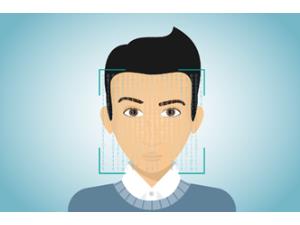



Date:27/01/20
 Facebook is believed to be working on adding facial recognition to the Messenger app, essentially providing users with a new protection layer when they want to prevent unauthorized access to their conversations.
Facebook is believed to be working on adding facial recognition to the Messenger app, essentially providing users with a new protection layer when they want to prevent unauthorized access to their conversations.
An early version of the feature was spotted by developer Jane Manchun Wong in Facebook’s Messenger app, and at first glance, it works just like the biometric locks available in WhatsApp.
Users will be allowed to enable facial recognition authentication from a dedicated screen and choose when they want the lock to come into effect, with the available options currently including 1 minute, 15 minutes, or 1 hour after leaving Messenger.
“When enabled, you will need to use Face ID to unlock the app. You can still replay [sic] to messages from notifications and answer calls if the app is locked. Your Face ID is not transmitted to or stored by Facebook,” the description of the feature reads.
If “Face ID” rings any bells to you, it’s because this is the name used by Apple for the facial recognition system available on the iPhone X and newer models. However, Facebook is very likely to rename it to something else before the feature goes live for everyone, especially because it’ll be launched on Android devices too.
Wong says the screenshot was made on an Android device anyway, so Face ID is most likely just a placeholder for now in the Messenger app.
It goes without saying that some people are concerned enabling facial recognition in the Messenger app would put their privacy at risk given the scandals Facebook has recently been involved in.
However, Facebook collecting Face ID data from an iPhone shouldn’t normally be possible, at least theoretically. A Face ID scan only returns an authentication success or failure to the service, without transmitting any information, which basically means that Facebook doesn’t receive any data.
Of course, Facebook will most likely share more details on how its facial recognition system works when the feature is ready for production devices.
Facebook will add facial recognition to Messenger app
 Facebook is believed to be working on adding facial recognition to the Messenger app, essentially providing users with a new protection layer when they want to prevent unauthorized access to their conversations.
Facebook is believed to be working on adding facial recognition to the Messenger app, essentially providing users with a new protection layer when they want to prevent unauthorized access to their conversations.An early version of the feature was spotted by developer Jane Manchun Wong in Facebook’s Messenger app, and at first glance, it works just like the biometric locks available in WhatsApp.
Users will be allowed to enable facial recognition authentication from a dedicated screen and choose when they want the lock to come into effect, with the available options currently including 1 minute, 15 minutes, or 1 hour after leaving Messenger.
“When enabled, you will need to use Face ID to unlock the app. You can still replay [sic] to messages from notifications and answer calls if the app is locked. Your Face ID is not transmitted to or stored by Facebook,” the description of the feature reads.
If “Face ID” rings any bells to you, it’s because this is the name used by Apple for the facial recognition system available on the iPhone X and newer models. However, Facebook is very likely to rename it to something else before the feature goes live for everyone, especially because it’ll be launched on Android devices too.
Wong says the screenshot was made on an Android device anyway, so Face ID is most likely just a placeholder for now in the Messenger app.
It goes without saying that some people are concerned enabling facial recognition in the Messenger app would put their privacy at risk given the scandals Facebook has recently been involved in.
However, Facebook collecting Face ID data from an iPhone shouldn’t normally be possible, at least theoretically. A Face ID scan only returns an authentication success or failure to the service, without transmitting any information, which basically means that Facebook doesn’t receive any data.
Of course, Facebook will most likely share more details on how its facial recognition system works when the feature is ready for production devices.
Views: 365
©ictnews.az. All rights reserved.Similar news
- Azerbaijani project to monitor disease via mobile phones
- Innovative educational system to be improved under presidential decree
- NTRC prolongs license of two TV and radio organizations for 6 years
- Azerbaijan establishes e-registry for medicines
- Azerbaijani museum introduces e-guide
- Nar Mobile opens “Nar Dunyasi” sales and service center in Siyazan city
- International conference on custom electronic services held in Baku
- OIC secretary general to attend COMSTECH meeting in Baku
- Azerbaijan develops earthquake warning system
- New law to regulate transition to digital broadcasting in Azerbaijan
- Azerbaijani State Social Protection Fund introduces electronic digital signature
- Intellectual traffic management system in Baku to be commissioned in December
- Tax Ministry of Azerbaijan started receiving video-addresses
- World Bank recommends Azerbaijan to speed up e-service introduction in real estate
- Azerbaijan to shift to electronic registration of real estate





















